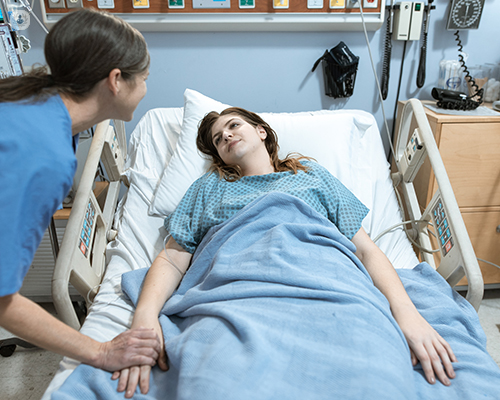What typically happens before undergoing gallbladder surgery?
Written by:In this article below, revered consultant hepatobiliary and liver transplant surgeon, Mr Shahid Farid, explains how gallbladder surgery is performed, and who the operation is most commonly recommended to.

What is gallbladder surgery?
Gallbladder surgery is a common surgical procedure performed to remove the gallbladder. There are two main types of gallbladder surgery: laparoscopic (keyhole surgery) cholecystectomy and open cholecystectomy. The most common of the two is laparoscopic cholecystectomy, in which several small incisions are made in the abdomen to allow the insertion of a camera and specialised surgical tools.
This minimally invasive approach allows surgeons to visualise and remove the gallbladder with precision. An open cholecystectomy involves making a larger incision in the abdomen to directly access and remove the gallbladder. This is done when keyhole surgery cannot be performed.
When and who is gallbladder surgery recommended for?
Gallbladder surgery is typically recommended for individuals who experience symptoms from gallstones. Gallstones are hardened deposits that can form in the gallbladder and cause pain, inflammation, or blockage of the bile ducts. In some cases, gallstones can lead to complications such as cholecystitis (inflammation of the gallbladder) or choledocholithiasis (blockage of the bile ducts).
What typically happens before undergoing gallbladder surgery?
Before undergoing gallbladder surgery, patients may be required to undergo tests such as ultrasound, blood tests, and in selected cases, an endoscopic retrograde cholangiopancreatography (ERCP) or magnetic resonance cholangiopancreatography (MRCP) to evaluate the condition of the gallbladder and surrounding structures. These tests help determine the most appropriate surgical approach and identify any potential complications.
How is gallbladder surgery performed?
During the surgery, general anaesthesia is administered to ensure that patients remain unconscious and pain-free throughout the procedure. In a laparoscopic cholecystectomy, small incisions are made in the abdomen, and carbon dioxide gas is used to inflate the abdominal cavity.
The camera and surgical tools are then inserted through these incisions, allowing surgeons to visualise and remove the gallbladder. The liver continues to make bile and pass this into the gut to continue to allow for the absorption of fat. In an open cholecystectomy, a larger incision is made in the abdomen to directly access and remove the gallbladder. This requires cutting though the skin and muscle and will require patients to stay in hospital after the operation.
After gallbladder removal, patients may experience some discomfort or pain at the incision sites. Having said that though, the majority of patients recover relatively quickly and can resume their normal activities within a few days to weeks.
What is recovery time like?
Recovery time varies, but most individuals can resume their normal activities within a few days to weeks following surgery. Most patients undergoing laparoscopic cholecystectomy will go home the same day with clear instructions of what to do if there any concerns. Those undergoing open cholecystectomy will be admitted to the hospital and looked after over the next two to four days as they recover.
To schedule in a consultation with Mr Shahid Farid, head on over to his Top Doctors profile today.


